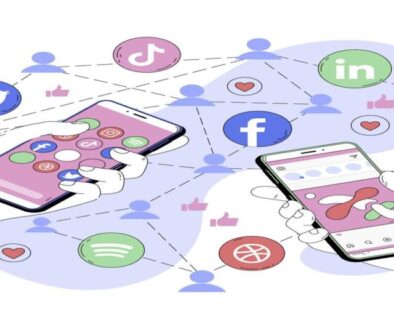The Power of Storytelling in Content Marketing
In today’s digital age, consumers are bombarded with content every minute. To stand out from the noise, brands need to engage audiences in a way that captures their attention and resonates emotionally. That’s where storytelling comes in. Storytelling in content marketing isn’t just about telling any story; it’s about connecting with your audience, building trust, and making your message memorable.
Here’s why storytelling is a game-changer in content marketing and how you can harness its power to build deeper connections with your audience.
1. Creating Emotional Connections
People remember stories far more than facts or data alone. A well-told story can evoke emotions—joy, empathy, excitement—that make your brand relatable. Emotional connections are key to creating a lasting impression, driving loyalty, and influencing buying decisions.
Example: Think of Nike’s “Just Do It” campaigns. Each ad isn’t just about selling shoes; it tells an inspirational story of overcoming challenges, resonating deeply with audiences worldwide.
2. Humanizing Your Brand
Storytelling gives your brand a human touch, making it more approachable. In a world where consumers crave authenticity, sharing stories about your brand’s journey, challenges, or values can build trust and make your brand more relatable.
Tip: Share behind-the-scenes stories of how your product is made or personal anecdotes from your team. This human element can turn a brand into something people feel connected to on a personal level.
3. Simplifying Complex Information
If your business deals with technical or complex subjects, storytelling can help simplify those concepts. By framing your message within a relatable or engaging narrative, you can make complex ideas easier to understand and more enjoyable to learn about.
Strategy: Use analogies or case studies that explain how your product or service solves a problem in real-life scenarios. This makes technical details more digestible and engaging.
4. Driving Engagement and Retention
Stories have a beginning, middle, and end, which naturally pulls people in and keeps them engaged. In content marketing, this is crucial for holding your audience’s attention and encouraging them to keep reading, watching, or interacting with your content.
Action: Structure your content with a clear narrative arc—introduce a problem, show the struggle, and present the solution. This format keeps your audience invested in the outcome.
5. Strengthening Your Brand Identity
Storytelling allows you to express your brand’s personality and values in a more compelling way. Consistently telling stories that align with your brand’s mission, values, and vision helps strengthen your brand identity, making it easier for customers to understand who you are and what you stand for.
Example: TOMS Shoes tells the story of their “One for One” model, where each purchase helps someone in need. This narrative reinforces the brand’s identity as socially responsible, which resonates with its target audience.
6. Building Trust and Loyalty
Stories foster trust. When you share authentic stories about your customers’ success, your brand’s mission, or how you handle challenges, it builds credibility. Customers want to engage with brands they trust, and storytelling creates a foundation for that trust.
Tip: Share customer testimonials in story form, highlighting their problem, how they found your brand, and how it improved their life. This adds a personal and relatable touch that fosters trust.
7. Encouraging Action Through Storytelling
Effective storytelling in content marketing doesn’t just entertain; it inspires action. Whether it’s signing up for a newsletter, making a purchase, or sharing the content, a well-crafted story can motivate your audience to take the next step.
Call to Action: Use storytelling to guide your audience toward a clear action. For example, conclude your narrative by inviting them to start their own journey with your product or service.
8. Standing Out from the Competition
In crowded markets, storytelling helps you differentiate your brand from competitors. While others may focus on promoting features and benefits, storytelling allows you to connect on a deeper level by emphasizing your unique journey, vision, and customer success stories.
Example: Apple doesn’t just sell tech; they tell stories about innovation and creativity, inspiring their audience to see themselves as part of that journey.
Conclusion
Storytelling is a powerful tool in content marketing that goes beyond selling products; it builds emotional connections, creates trust, and makes your brand memorable. By weaving compelling narratives into your content, you not only capture attention but also create a loyal audience that relates to your brand on a personal level.
Vishnu Rajappan is an SEO specialist and founder of Search Engine Surge , a blog dedicated to cutting-edge SEO strategies and insights. With a deep passion for search engine optimization, Vishnu helps businesses maximize their online visibility and organic growth. He also consults on SEO and digital marketing, leveraging years of industry experience to drive impactful results.






